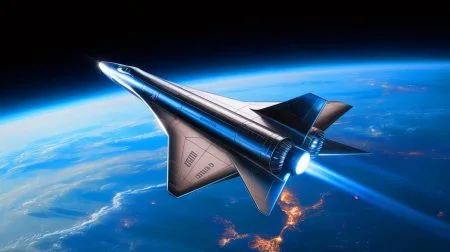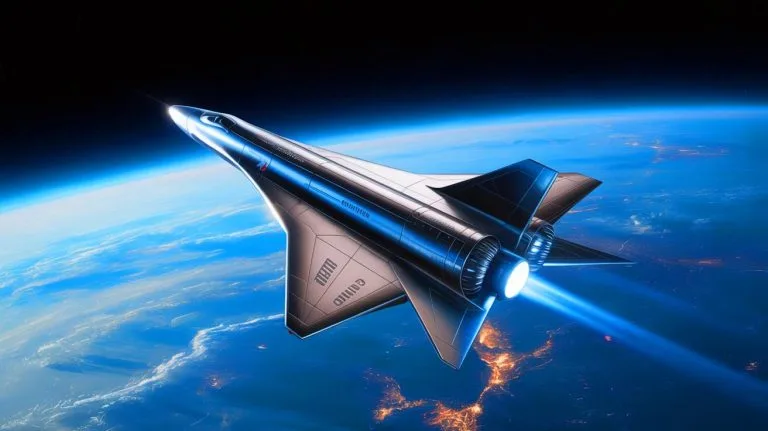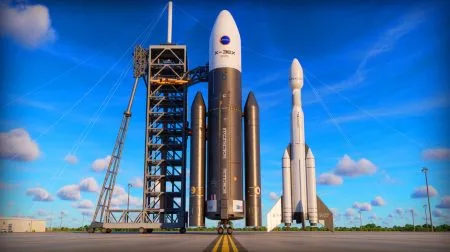| IN A NUTSHELL |
|
As global powers like China and the United States aggressively advance their capabilities in space combat and military space technology, France risks lagging behind in this crucial arena. During a session with the French National Assembly’s Defense Committee, Dassault Aviation CEO Éric Trappier highlighted the glaring omission of a French spaceplane initiative. Emphasizing the urgency of the situation, Trappier expressed concern over France’s potential strategic irrelevance in orbit. While other nations are already maneuvering for dominance, France remains on the sidelines. This article will explore the implications of this technological gap and discuss the potential consequences for France’s future in space.
The Strategic Importance of Spaceplanes
Spaceplanes, vehicles capable of operating both within Earth’s atmosphere and in outer space, have become a focal point for major global players like the United States and China. While they may still appear futuristic, these nations no longer view them as science fiction. Instead, they are seen as essential components of modern military strategy. Éric Trappier, CEO of Dassault Aviation, emphasized this point during his address to French lawmakers. He pointed out that the United States and China are already making significant strides in this area, raising concerns about France’s absence from the race.
The utility of military spaceplanes extends beyond mere technological novelty. They offer the potential for deployment and resupply of satellite constellations, crucial for maintaining strategic communication and surveillance networks. Additionally, spaceplanes could perform surveillance and intelligence gathering in orbit, providing real-time data crucial for defense and security. Moreover, they hold the capability to neutralize or destroy enemy space assets, a critical advantage in modern warfare. As Trappier succinctly put it, the management and potential destruction of satellite constellations are poised to become pivotal issues in the coming years.
“The Chinese are far ahead. The Americans don’t want the Chinese to take the lead, so they are moving ahead themselves,” Trappier warned.
Despite the clear strategic imperatives, France has yet to develop a comprehensive spaceplane program, raising questions about its future role in space security.
Institutional and Budgetary Challenges
The lack of progress in French spaceplane development can be largely attributed to institutional and budgetary constraints. Trappier pointed out that although there are entities like Ariane Group working on important projects, resources remain limited. This situation contrasts sharply with developments in other nations. For instance, the United States has been operating the Boeing X-37B, an unmanned reusable spaceplane, for several years. Additionally, private companies like SpaceX and Sierra Space are making significant headway in this arena.
Furthermore, the US Space Force has revealed that China has been conducting “dogfighting” maneuvers in space. These involve coordinated satellite movements designed to simulate orbital combat. Describing these activities, General Michael Guetlein of the US Space Force noted the practice of tactics and procedures for on-orbit operations among Chinese satellites. These advancements underscore the urgency of developing a robust spaceplane program for France.
While Trappier stopped short of recommending immediate action, he stressed the need for France to remain aware of the rapid developments in space technology. The question remains whether the French government will heed this warning and allocate the necessary resources to bridge the technological gap.
The Accelerating Militarization of Space
Trappier’s message echoes a broader concern previously expressed by French authorities regarding the security of space. In 2018, then-Defense Minister Florence Parly disclosed an attempt by the Luch satellite, also known as Olymp-K, to spy on the Franco-Italian satellite Athena-Fidus. This satellite provides secure telecommunications services to military forces and emergency services. The French Air Force had identified similar instances of foreign spacecraft approaching French military satellites in earlier years.
The militarization of space is no longer a theoretical issue but a pressing reality. The need for strategic capabilities in orbit has never been more critical. However, the question remains whether Trappier’s message will resonate with French policymakers. Will they recognize the importance of investing in space security before it’s too late?
Vehra: France’s Forgotten Spaceplane Ambition
France’s hesitancy to pursue a spaceplane program is not due to a lack of vision. In the early 2000s, Dassault Aviation explored the Vehra project, which aimed to develop an Airborne Reusable Hypersonic Vehicle. This concept built on Dassault’s past involvement in NASA’s X-38 experimental spaceplane program. Despite its promise, the Vehra project never materialized. The reasons range from budgetary constraints to shifting priorities. This missed opportunity highlights the ongoing challenges France faces in aligning its defense ambitions with its technological capabilities.
Today, the need for a spaceplane is more urgent than ever. However, France must weigh the costs and benefits of reigniting its spaceplane ambitions against the backdrop of a rapidly evolving global landscape. As global players continue to assert their dominance in space, will France step up to reclaim its place in this strategic frontier?
As France grapples with the challenges of maintaining its strategic relevance in space, the question remains: how will it navigate the complexities of space militarization in a rapidly changing world? With other nations forging ahead, can France afford to lag behind, or will it take decisive action to secure its future among the stars?
Did you like it? 4.6/5 (30)







Is it too late for France to catch up in the space race? 🤔
Isn’t it time for France to look beyond Earth and invest in space? 🚀
Thank you for raising this important issue. France needs to wake up!
Wow, who knew spaceplanes could be so crucial for military strategy!